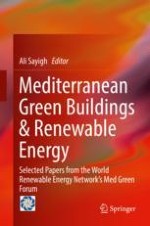2017 | OriginalPaper | Chapter
30. The Possible Shift Between Heating and Cooling Demand of Buildings Under Climate Change Conditions: Are Some Mitigation Policies Wrongly Understood?
Author : Massimo Palme
Published in: Mediterranean Green Buildings & Renewable Energy
Publisher: Springer International Publishing
Activate our intelligent search to find suitable subject content or patents.
Select sections of text to find matching patents with Artificial Intelligence. powered by
Select sections of text to find additional relevant content using AI-assisted search. powered by
